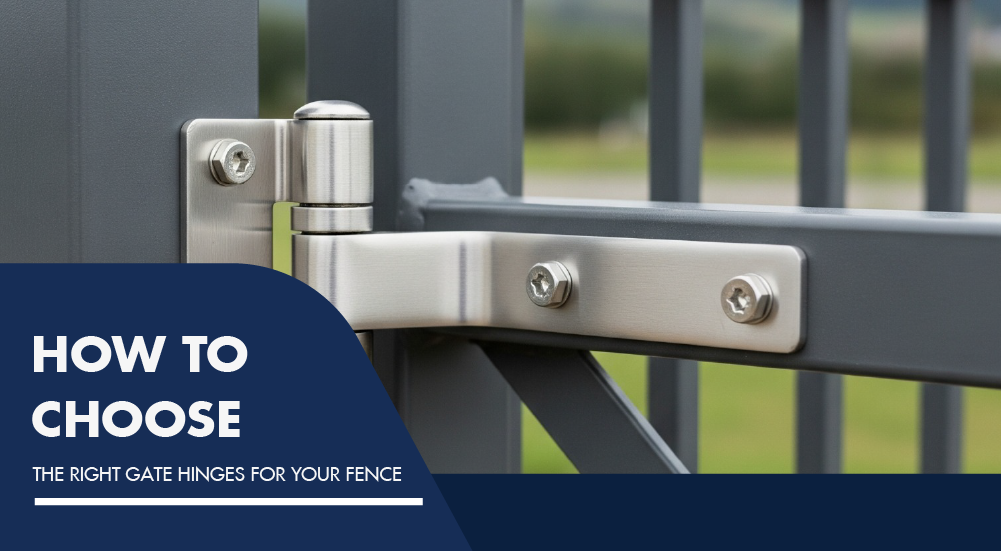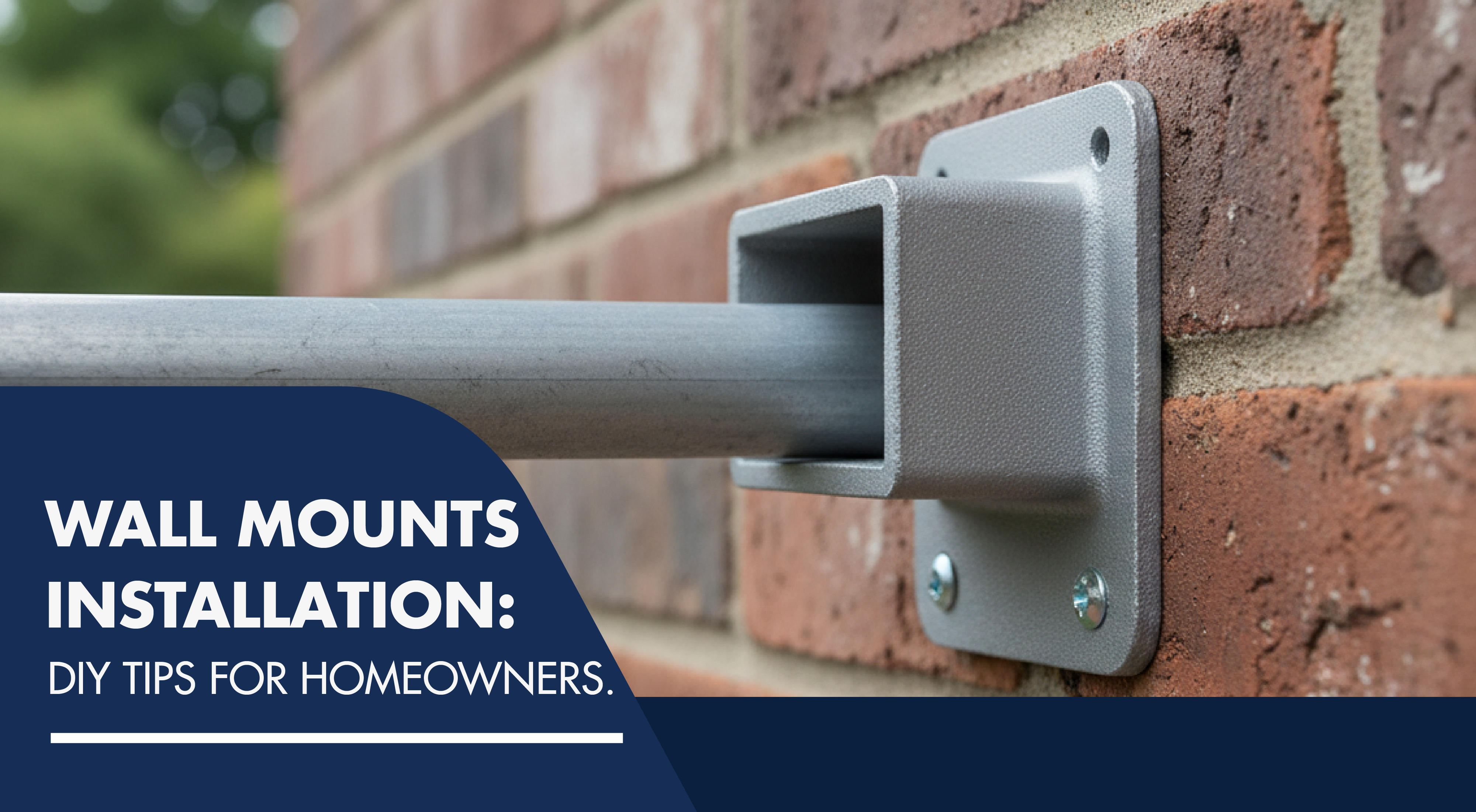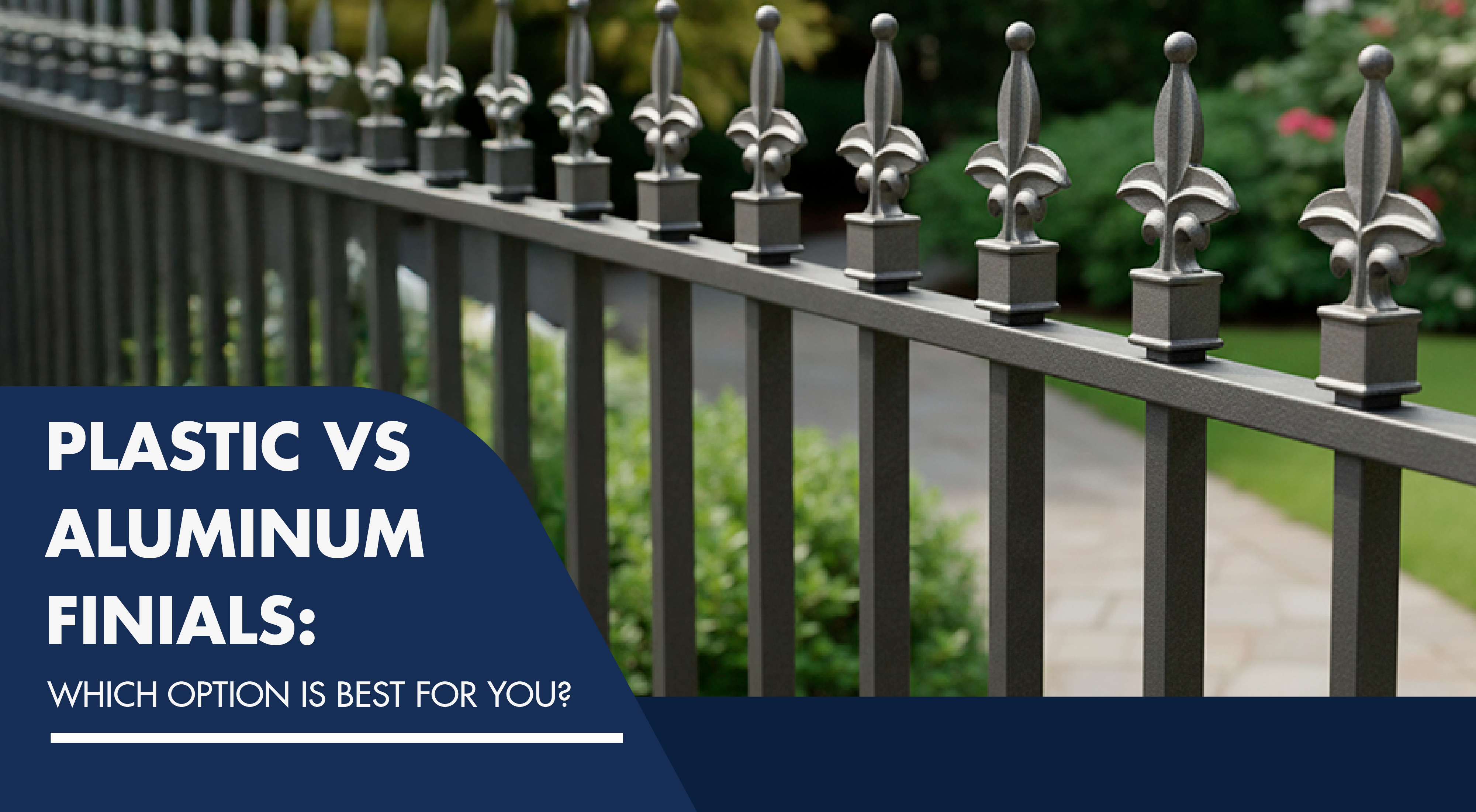Choosing the right gate hinges for your fence gate is more than a small hardware decision — it’s the key to ensuring smooth operation, long-term durability, and reliable security. If you’re looking for performance and style in one, Premium Gate Hinges are the way to go. Whether you’re building a brand-new fence or upgrading an old gate, understanding the different hinge options will help you make the smartest choice for your property.
From heavy-duty designs for large gates to sleek, decorative styles that enhance curb appeal, the right hinges can transform how your gate looks and functions. Investing in quality from the start saves you time, reduces maintenance needs, and ensures your gate operates flawlessly for years to come.

Understanding the different types of hinges for gates
Not all gate hinges are created equal. The type you choose will depend on the gate’s material, size, and intended use. Common types include:
-
Butt hinges: Compact and strong, ideal for lighter gates.
-
Strap hinges: Long arms that provide extra support, perfect for heavier wooden or metal gates.
-
Self-closing hinges: Designed for pool or safety gates where automatic closure is needed.
-
Heavy-duty hinges: Built to handle large, heavy gates with maximum stability.
By matching the hinge type to your specific needs, you can extend the life of both your gate and your fence.
How climate and location affect your hinges for gates choice
It’s easy to focus on style and strength when picking hinges, but climate plays a huge role in how they’ll perform over time. If your property is near the coast, salt in the air can quickly corrode untreated steel hinges, leading to rust, stiffness, and even failure. In these environments, aluminum or stainless steel gate hinges are far better options thanks to their natural resistance to corrosion.
In regions with extreme temperature swings, metal expansion and contraction can cause hinges to loosen over time. Choosing hinges with adjustable tension or easy-to-tighten fasteners can prevent alignment issues. For areas with high winds, heavier-duty hinges with reinforced mounting plates help distribute the load and keep gates stable, reducing wear on both the hinges and the fence frame.
Even humidity levels matter — wooden gates in damp climates can swell, putting extra pressure on the hinges. Opting for hinges with elongated screw holes allows for slight adjustments as the wood expands and contracts throughout the year.
By factoring in your local climate and installation environment, you’re not just picking hinges — you’re investing in a solution that will keep your gate operating smoothly and looking great for years to come.
Materials matter: steel vs. aluminum hinges
Gate hinges come in a range of materials, but the two most common are steel and aluminum, each with its own advantages depending on your gate’s size, weight, and environment.
Steel hinges
They are valued for their exceptional strength and load-bearing capacity, making them ideal for heavy-duty gates such as large driveway or security gates. They offer excellent stability and can handle frequent use without warping or bending. However, because steel is prone to rust, it requires a durable protective coating—such as galvanization, powder coating, or regular painting—to ensure long-term performance in outdoor conditions.
Aluminum hinges
They are lightweight yet surprisingly strong, and their natural corrosion resistance makes them perfect for coastal areas, humid climates, or anywhere moisture is a concern. They require minimal maintenance and won’t rust, which means they retain both their appearance and functionality over time.
Choosing the right hinge material is more than just a style preference—it’s a practical decision that affects the smoothness of operation, the level of upkeep required, and the overall lifespan of your gate. By matching the hinge material to your environment and usage needs, you ensure reliable performance for years to come.
Key factors to consider when buying gate hinges
Before you make a purchase, keep these points in mind:
-
Gate weight and size: Heavier gates need stronger hinges.
-
Mounting style: Surface-mounted hinges are easy to install; welded hinges offer maximum strength.
-
Adjustability: Some hinges allow fine-tuning to keep your gate aligned over time.
-
Aesthetic match: Your hinges should complement the style and finish of your fence.
Fence Hardware for Secure and Durable Installations
Your gate hinges don’t work alone — they’re part of a complete system that determines how well your fence will perform over time. High-quality fence hardware ensures that every component, from latches and locks to brackets, fasteners, and posts, works together to create a secure, stable, and long-lasting installation.
Durable hardware not only provides structural integrity but also enhances safety by keeping gates properly aligned and preventing unwanted access. Investing in robust, weather-resistant materials such as galvanized steel or powder-coated finishes reduces the risk of rust, sagging, or warping, even in challenging climates.
By choosing the right hardware from the start, you minimize future maintenance needs, extend the lifespan of your fence, and keep it looking and functioning at its best. The result is a fence that remains strong, reliable, and visually appealing year after year.

Common installation mistakes to avoid
Even the best hinges can fail if installed incorrectly. Watch out for these common issues:
-
Incorrect hinge placement: Too high or too low placement causes uneven pressure and premature wear.
-
Using undersized screws or bolts: This weakens the hold and increases the risk of sagging.
-
Skipping alignment checks: A misaligned hinge can make the gate stick or drag.
Taking the time to install hinges for gates properly will save you time, money, and frustration later.
The impact of hinge choice on your fence’s overall style
When most people picture a beautiful fence, they think about the panels, the posts, or maybe the color. But here’s the truth — the hinges for gates you choose can quietly make or break the entire look. The wrong hinge can stand out in the worst way, clashing with your fence’s design or even drawing attention to poor alignment. On the other hand, a well-chosen hinge blends seamlessly with the structure while adding a touch of craftsmanship.
Finish and color are often overlooked but critical. Matte black hinges can give a traditional wrought iron fence a timeless, elegant appearance, while brushed stainless steel can add a modern, sleek touch to contemporary aluminum designs. If you’re going for a rustic or vintage vibe, an oil-rubbed bronze or antique finish might be the perfect match.
Size and proportion also play a role. Oversized hinges on a small, lightweight gate can feel bulky and out of place, while tiny hinges on a large wooden gate can look awkward — and fail structurally. Choosing the right proportion keeps your fence visually balanced.
Finally, the style of the hinge can subtly reinforce the design language of your fence. A strap hinge with decorative tips can echo the ornamental patterns of an iron gate, while minimalist butt hinges can disappear into the clean lines of a modern design.
Your fence is more than a boundary — it’s part of your home’s first impression. By selecting hinges that match its character, you ensure every detail works together to create a polished, intentional look that elevates curb appeal and makes your property stand out for the right reasons.

The right hinges make all the difference
Choosing the right gate hinges isn’t just about opening and closing a gate — it’s about safety, durability, and enhancing the overall look of your fence. Whether you need sleek, modern aluminum hinges or heavy-duty steel models, investing in quality will always pay off.
Browse our selection of Premium Gate Hinges and matching hardware at Fittings Plus to find the perfect fit for your next project.






